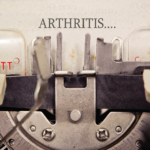NEW YORK (Reuters Health)—Psoriasis is linked to a higher risk for arrhythmia, independent of classic cardiovascular (CV) risk factors, according to a study from Taiwan.
“In my practice, arrhythmia as comorbidity is discussed during patient consultation along with other comorbidities,” said senior author Dr. Tsen-Fang Tsai of the Department of Dermatology at National Taiwan University College of Medicine in Taipei.
For patients with CV risk factors who ask for systemic therapy, especially biologic agents, Dr. Tsai’s group advises electrocardiography.
Using national administrative databases, the researchers identified 40,637 patients with psoriasis seen between 2004 and 2006 and compared them to 162,548 matched patients without psoriasis seen during the same time period.
Patients with psoriatic arthritis had about a 46% increased likelihood of arrhythmia over the course of the study compared with controls, while the overall risk for arrhythmia for all forms of psoriasis was 34% higher.
Patients with severe psoriasis had a 35% greater risk compared with controls, and patients with mild psoriasis had a 25% greater risk.
Younger patients with psoriasis (age 20 to 39) had a 39% increased risk for arrhythmia compared with middle-aged and elderly patients.
“These findings may indicate that psoriasis can be added to future risk-stratification scores for arrhythmia,” the authors wrote online July 15 in the Journal of the American Academy of Dermatology.
Additionally, they say, increased screening for arrhythmia may yield earlier detection and earlier intervention, “thereby reducing the morbidity and mortality of stroke and sudden death.”
Dr. Tsai noted that oral antihistamines “might be pro-arrhythmia” and therefore, for psoriasis-relayed itch, “we are thus more relying on more effective anti-psoriasis medication and not antihistamine for those with arrhythmia.”
Dr. Colby Evans, chair of the Medical Board of the National Psoriasis Foundation and a dermatologist in Austin, Texas, told Reuters Health by email: “We already know that having psoriasis increases the risk of other serious conditions, like heart attack and stroke. Patients with psoriasis are at a 50% risk for early death and die an average of four years earlier than those without psoriasis. These arrhythmias could be part of the reason why.”
That said, both Drs. Tsai and Evans stressed that psoriasis patients need to have a primary care physician to follow them for heart health and urge important lifestyle changes to reduce risk for heart events.
Dr. Evans also pointed to an earlier Kaiser study that showed substantial drops in heart attack risk for patients treated with tumor necrosis factor-alpha inhibitors, oral regimens, and phototherapy versus those treated with topical treatments alone.
“This might suggest that if we decrease systemic inflammation in the body we can decrease the risks of these serious comorbidities,” he said.
In a follow-up call, Dr. Evans said that a limitation of the study is its retrospective design. “We (the National Psoriasis Foundation) are looking forward to developing a psoriasis registry and are in partnership with the rheumatoid arthritis registry and corrona.org. We hope to enroll tens of thousands of psoriasis patients nationally in the voluntary registry. This will be a boon to looking at these correlations.”



